If your humidifier water is turning black, it may raise some concerns. It's no secret that something is wrong, but why is this happening? We have done the research to help you solve this problem in this article.
If your humidifier water is turning black, it is likely due to mineral build-up. Minerals like sodium, calcium, and magnesium will clump together and settle at the bottom of the tank. As a result, they will create black particles that cause your humidifier water to turn black over time.
There are several health benefits to having a humidifier clean and functioning correctly. That's why in this article, we will discuss why your humidifier water is turning black and the potential risks. In addition, we will take a look at other frequently asked questions about humidifiers, so read on!
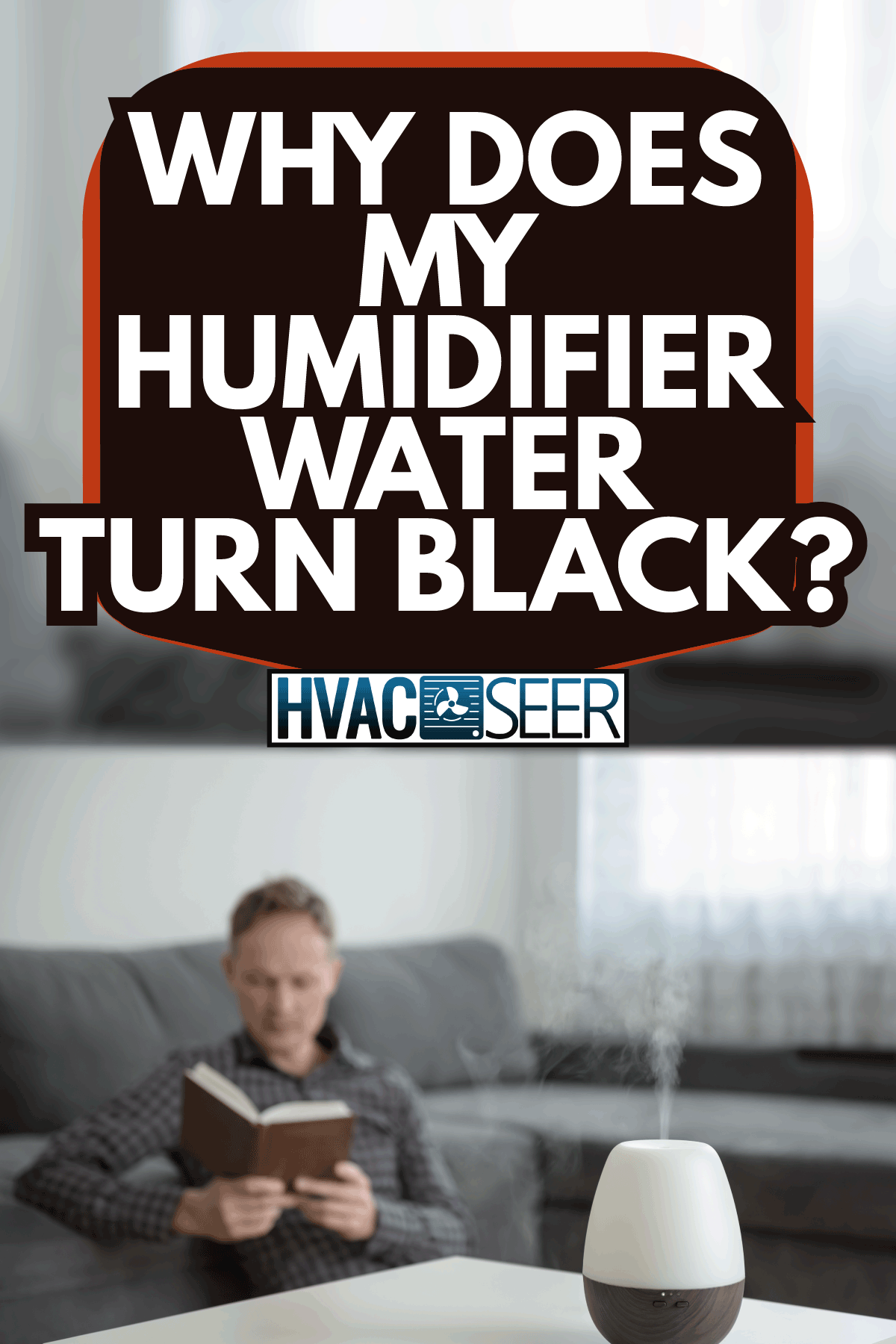
Why Does My Humidifier Water Turn Black?
Humidifiers add moisture back into the air due to dry weather conditions. Whether you use it at home or work, we hope to help make sense of why your humidifier water is turning black.
The first step is to determine if there's too much mineral build-up in your tank or base unit. Sodium, magnesium, calcium, and other minerals naturally occur within your water supply.
Sometimes these particles will attach to the heating plate and slough off into the tank. Over time, mineral particles will settle in your humidifier and create a black residue that causes water to turn black. In addition, when you clean your humidifier, it may cause a build-up of minerals, leading to more clumping.
For you to get back up and running, there are two options: 1) descale your humidifier or 2) replace the mineral tank.
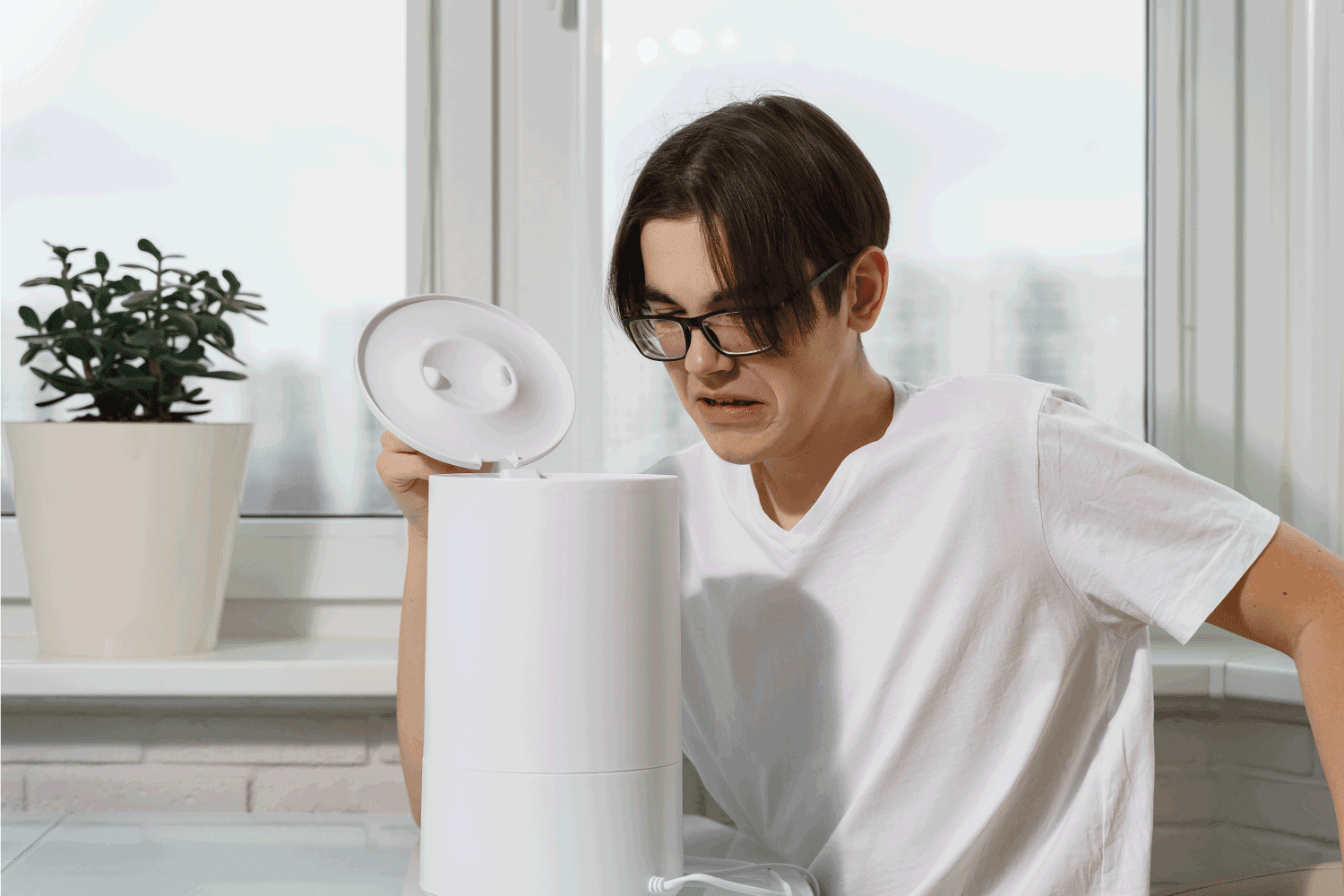
Descaling a Humidifier
The first option is to clean out your humidifier and descale with white vinegar. Cleaning a humidifier with vinegar will help dissolve the mineral build-up so that it can be flushed from your system. It's recommended to do this after every 1-3 months.
Replacing the Mineral Tank
The second option is to replace your mineral tank. This will solve your humidifier water turning black problem, but you may need to find a replacement part depending on the model of humidifier you own.
Can dirty water in a humidifier make you sick?
Yes, in some cases, dirty water can make you sick. Since humidifiers are meant to add moisture back into the air, they will also suck in any airborne microscopic particles like mold spores, dirt, and dust mites that settle on the tank. If not cleaned out, these particles may cause sickness; this is why it's recommended that you clean your humidifier frequently.
Dirty water can be especially harmful to people who have allergies or asthma. However, even healthy people can experience flu-like symptoms from dirty water in a humidifier.
How do I know if my humidifier has mold?
If you own a humidifier and there is water at the bottom of your base unit, then it's likely that there is some growth. This can be caused by several factors such as mineral build-up, dirty water, or simply not drying out the tank before storing.
To check for mold, you'll need to run vinegar through your humidifier. You can then pick up the tank and look for any discoloration, growth, or musty smell. Then you may want to place it back in your base unit but away from the heating plate [i.e., upside down]. If there's no growth after 24 hours, you should be safe to continue using the humidifier.
If you're very sensitive to mold, then it's recommended that you take a look at your tank and base unit every time after cleaning to make sure nothing has grown. In addition, it's best to clean out the water tank before putting it away in storage.
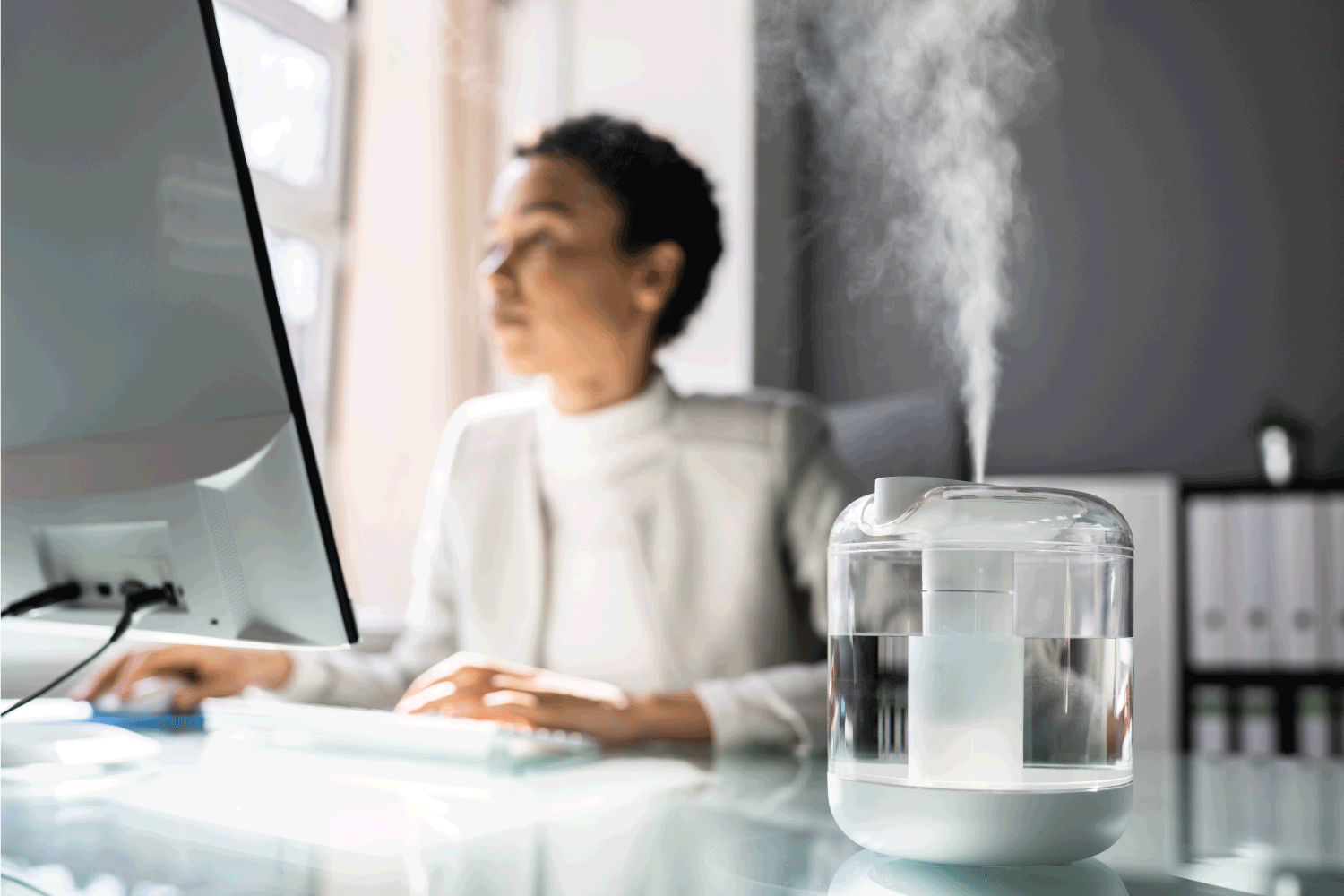
How do I get rid of black mold in my humidifier?
Black mold can be dangerous to breathe in. It's recommended that you keep your humidifier at least 12 inches away from any walls or furniture. Also, the area needs to be well-ventilated, so open some windows if possible.
While it may be tempting to use bleach on your equipment, you should avoid doing this as it can cause the mold to spread. Instead, you may want to use distilled vinegar.
If you do not think that your humidifier water is safe for consumption, then it's recommended that you throw away the tank and base unit. It's also a good idea to replace any filters along with cleaning out the area where your humidifier was stored.
Note that mold may grow back if you continue to use your humidifier. You can choose to buy another humidifier or try buying some anti-bacterial wipes and cleaning the outside of the tank after each use.
Will a humidifier cause mold?
Dirty humidifiers can cause mold. However, not allowing the tank to dry out after each use can cause mold growth. Also, using tap water instead of distilled or filtered water may damage the humidifier and should be avoided.
In addition, excessive use of a humidifier can cause mold. If there is too much moisture in the air, it can cause problems. If you live in a humid climate, it's best to use your humidifier sparingly.
How often should I clean my humidifier?
You should clean your humidifier at least once a week. This includes emptying the water tank and base unit, wiping down any mineral or dirt build-up from around it, and making sure there is no mold growing.
In addition, you should replace your humidifier's filter if possible. In some cases, a new one may need to be purchased depending on the model of humidifier you have.
Can I use bleach on my humidifier?
No, it's recommended that you use vinegar to prevent any mold from growing. Please note that bleach can damage your humidifier and is not recommended for use. It can also be dangerous to breathe in, so it's not recommended that you use it to clean your humidifier.
In addition, bleach only kills the surface of the mold, not the membrane itself. So, if you use bleach, there's a possibility that mold may grow again.
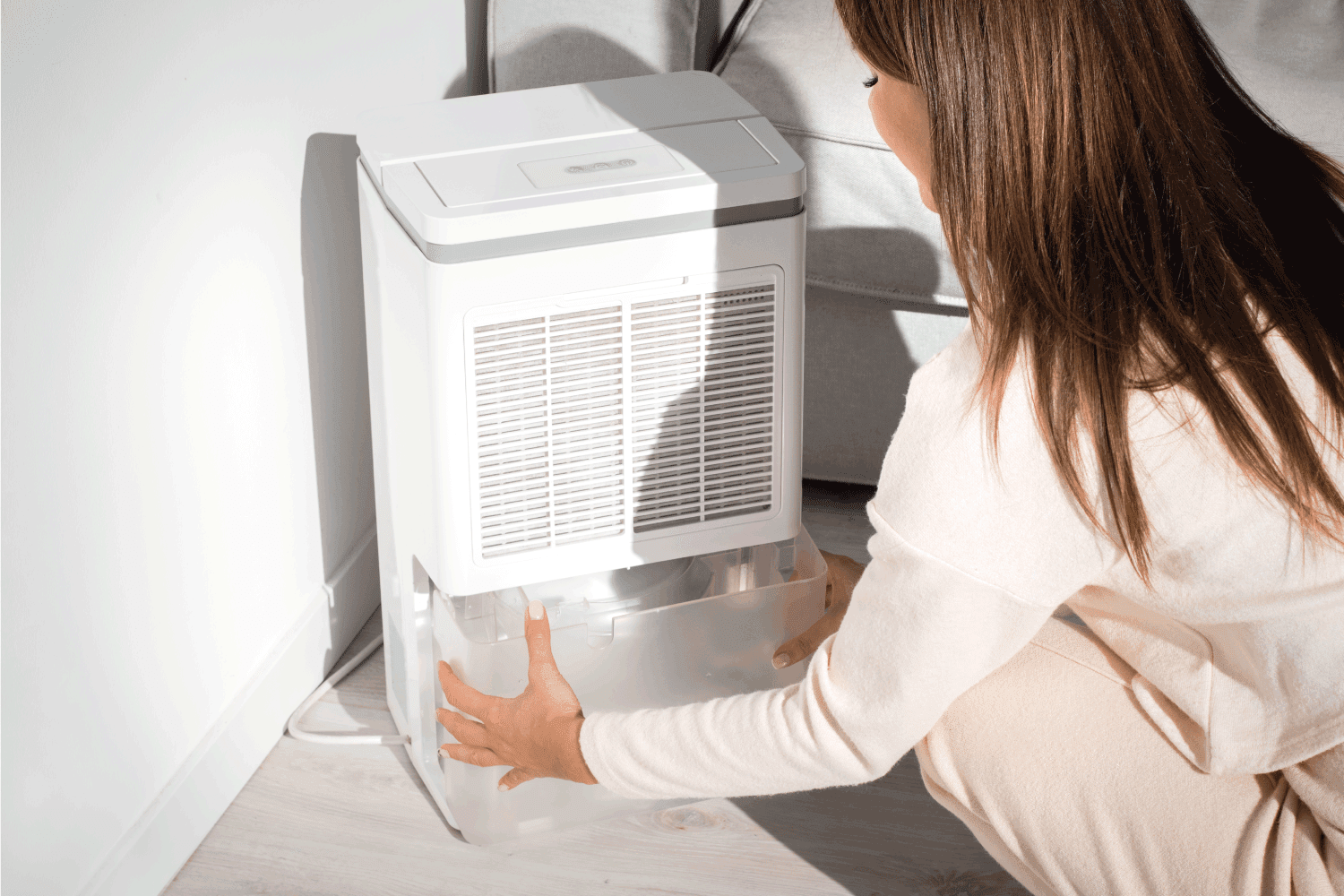
Is it safe to keep a humidifier on all night?
As long as your humidifier is clean, then it is safe to use your humidifier all night. Humidifiers serve several benefits to your skin, mouth, and throat. Your lungs can make use of humidity as well.
If you live in a dry climate, then it's recommended that you keep the humidifier on at least during the nighttime hours. However, as long as you have clean mineral build-up and no mold growth, then there should be no issues using your humidifier all night long.
How do I know if I need a humidifier?
There are several benefits to using a humidifier, especially if you live in a very cold and dry area. For example, the powder on your skin and tongue can become too dry and cause discomfort.
In addition, your throat may be more likely to develop a sore due to the low humidity levels. This is because it becomes more difficult to swallow without enough saliva.
Humidifiers are also beneficial for kids, especially if they get dry skin or develop a sore throat. This is because the air is less likely to irritate their lungs and respiratory system.
In addition, if your wood floors or furniture are drying out, it is a sign the air is too dry in your home. A humidifier can prevent this, keeping your floors and furniture intact.
Is it bad to use tap water in a humidifier?
Using tap water in a humidifier can be detrimental to the device. Tap water contains minerals and chemicals that may damage the humidifier's equipment over time. Instead, you should always use distilled or purified water in your humidifier.
In addition, the plastic components of your humidifier can also warp if they're constantly exposed to mineral build-up. This means that it is not safe to use tap water in your humidifier.
In addition, tap water can cause mold in some cases. If you empty the tank after every use, it will prevent any mold from growing in the device. However, if there's no way to empty the water or you choose not to do so, then it may be best to avoid using tap water with your humidifier.
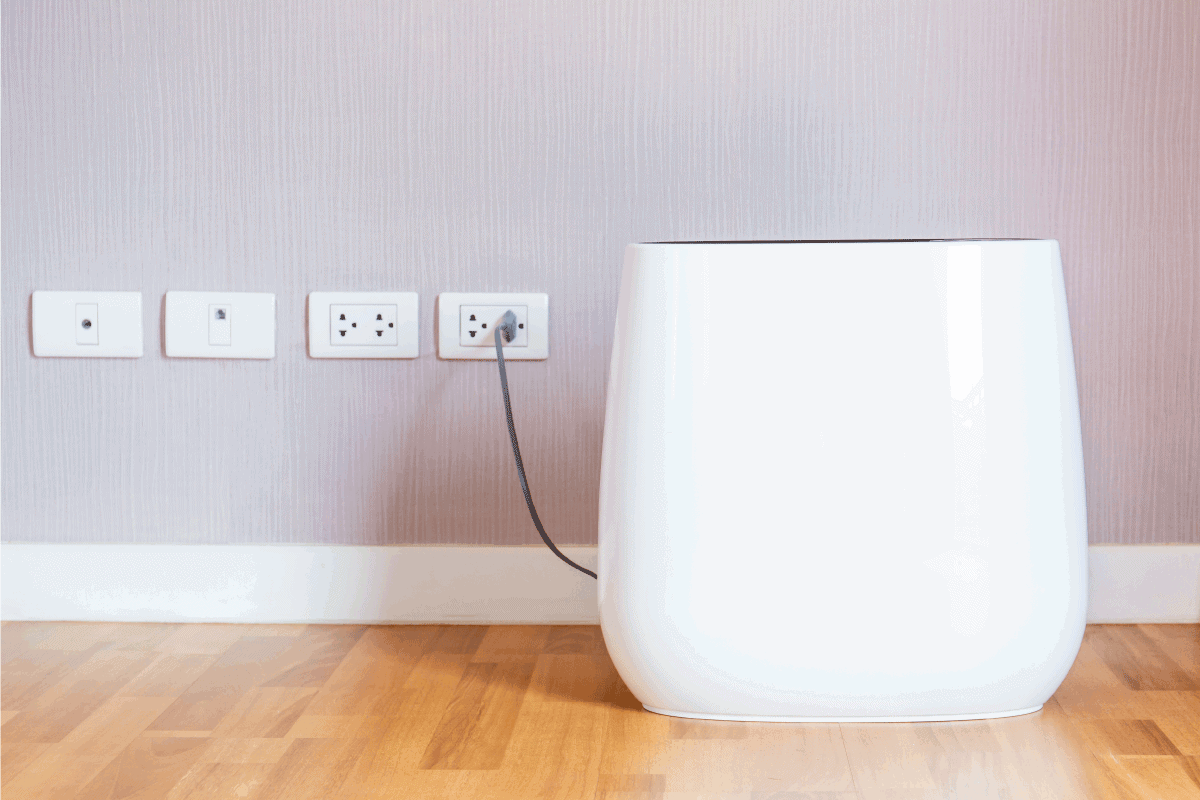
Final Thoughts
Using a humidifier in your home is beneficial to the environment and health. If you live in an arid climate, then you should use one.
As long as your humidifier is clean and free of mold, it will serve its purpose well. Cleaning your device will prevent any damage and keep it running smoothly for years to come.
For more articles on humidifiers, then take a look at our website:
How To Drain Dehumidifier With A Hose
